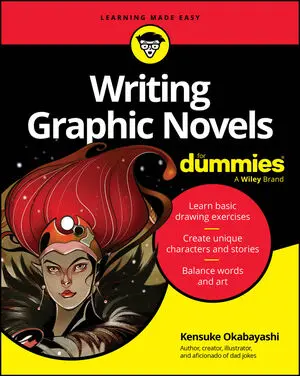Exercises are great ways to develop and strengthen general and specific writing muscles and are great when you first start writing a children's book. Each exercise can be used not only to get you writing, but also to come up with themes to write about. Writing memorable characters is of the utmost importance — and you can’t write memorable characters unless you know them really well.
Children are wild creatures at heart. If they didn’t have adults around them to teach them, discipline them, and rein them in, they would naturally grow into wild beasts, experiencing whatever they wanted to and never holding back.
That tendency to revel unrestrained in their lives is what allows children to experience events and emotions very deeply. That kind of open emotionality is a good thing to incorporate into children’s books.
But adults have often forgotten what it means to have emotions right at the surface, to care about someone so deeply and unselfconsciously that you notice everything about them and take it all in.
Describe your first best friend
For a children’s book writer, writing memorable characters is the single-most important skill for you to master. But sometimes you may have trouble coming up with a good idea for a character. You can get a head start by writing about your first best friend.
Devote an entire single-spaced page to everything you can remember about your first best friend. Use each of these descriptions to paint her as the substantive character she was:
Her appearance
Her clothes and style
Her favorite color
Her family members and what they were like
Her favorite food or treat
Her favorite activity that you two did together
Her favorite activities
The secrets you shared
The things about her you envied or tried to emulate
Her way of walking, talking, or eating that set her apart
Writing about someone you knew well as a child is the perfect way to develop your ability to create good child characters. Ultimately, you’ll change a lot of attributes about a character to fit your story (and to protect the innocent), but knowing how to build a unique person out of words on paper is the most important skill you can have as a children’s book writer.
Long after you forget exactly what happened in Louise Fitzhugh’s Harriet the Spy (Yearling), you still remember Harriet. Years after reading Roald Dahl’s Charlie and the Chocolate Factory (Puffin Books), you may not recall the plot, but you do recall Charlie, the Oompa-Loompas, and the inimitable Mr. Wonka (a better childlike adult character has never been written!).
Borrow your favorite children’s book characters
Pick up one of your favorite books and write down the names of the main characters, the ones who made you fall in love with the book. Now take those characters and write them a new adventure in your own voice. (Quite a few recently published books have successfully used existing literary characters from books in the public domain.)
This exercise allows you to write using someone else’s ideas and characters that you know well (so you don’t have to come up with your own) while allowing you to take those characters on a totally different adventure written in your own voice.
Exercises like these may seem unrelated to the task at hand (writing your children’s book), but they are directly related. They help you hone the skills you need for your writing, allowing you to practice before you commit to the real thing.






